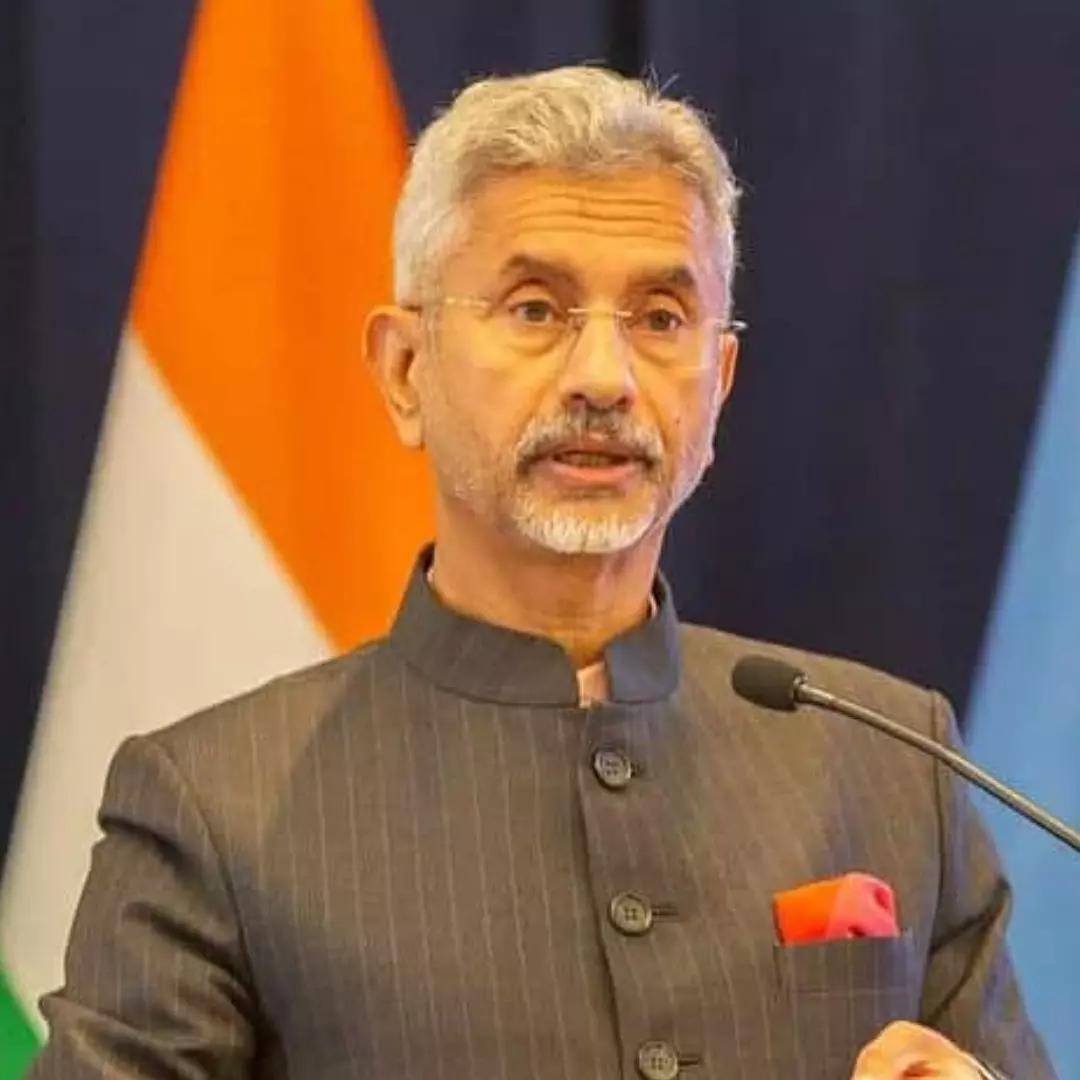In a noteworthy trend that has gained attention in recent years, a significant number of Indians have chosen to renounce their citizenship, with as many as 87,026 individuals doing so until June this year. The data, disclosed by External Affairs Minister S Jaishankar in the Lok Sabha on Friday, reveals that the trend has been escalating, with a total of more than 17.50 lakh people giving up their Indian citizenship since 2011.
Breaking down the figures, Jaishankar provided a year-by-year breakdown of the Indians who relinquished their citizenship. In 2022, a staggering 2,25,620 Indians decided to renounce their Indian citizenship, followed by 1,63,370 in 2021, 85,256 in 2020, 1,44,017 in 2019, and so on, going back to 2011 when 1,22,819 Indians made the decision.
“The number of Indian nationals exploring the global workplace has been significant in the last two decades. Many of them have chosen to take up foreign citizenship for reasons of personal convenience,” Minister Jaishankar stated, acknowledging the reasons behind this trend as per a report in Economic Times.
Recognizing the value of the Indian community living abroad, Jaishankar emphasized that the government has been actively transforming its engagement with the diaspora. He expressed the view that a successful, prosperous, and influential diaspora serves as an advantage for India, and the government’s approach is to leverage diaspora networks and reputation for national gain.
Among the destinations chosen by Indians who renounced their citizenship, the United States emerged as a prominent choice. The Ministry of External Affairs data reveals that a staggering 7,88,284 Indians relinquished their citizenship in 2021 alone, continuing the pursuit of the “American dream.”
The growing numbers of Indians seeking foreign citizenship have sparked discussions about the implications of this trend on the country’s diaspora and its global engagement. While personal convenience remains a driving factor, the broader implications of such decisions are a subject of interest for policymakers and experts.
As India continues to nurture its relationship with the diaspora, the government’s efforts to tap into diaspora networks and utilize their influence for the nation’s benefit will undoubtedly remain in the spotlight. The evolving dynamics of Indian citizenship abroad are likely to be a subject of continued observation and analysis in the coming years.
Higher Economic Prospects For Indians Abroad
The latest World Development Report published by the World Bank has revealed that moving abroad offers significantly higher economic prospects for Indians compared to internal migration within the country. According to the report, Indian workers experience a remarkable 120 percent increase in their incomes when working outside India, while domestic migration within the country only results in approximately a 40 percent boost to personal incomes.
The report emphasizes that migration leads to substantial wage increases for individuals whose skills and attributes align with the demands of the destination country. Such gains often exceed what could be achieved in the home country, even when comparing internal migration to relatively better-off locations within India.
In particular, low-skilled Indian workers stand to benefit immensely from migration to high-income countries. The report highlights that a low-skilled Indian worker can expect a staggering 500 percent rise in income in the United States, with the United Arab Emirates being the next favored destination, offering a 300 percent increase compared to India.
The economic gains from migration are so significant that at the current pace of economic growth, it would take decades for an average low-skilled person working in certain countries of origin to earn what they could achieve by migrating to a high-income country, according to the report.
While the phenomenon of talented Indians moving to developed countries has often been labeled as “brain drain” by the media, the World Bank report contends that such migration may have played a pivotal role in India’s Information Technology (IT) revolution. Renowned figures like Sundar Pichai, Satya Nadella, and Arvind Krishna exemplify Indian migrants who have thrived in Silicon Valley and contributed significantly to India’s IT industry, transferring knowledge and fostering innovation.
The report highlights that Indian migrants in California’s Silicon Valley have established large IT-related firms in India, with firms founded by returnees accounting for approximately 90 percent of software technology parks in Bangalore in 2006.
Furthermore, migration to developed countries can have a positive economic impact on the country of origin through remittances. Remittances serve as a stable source of income for the families of migrants, supporting investments in education, healthcare, housing, and entrepreneurial activities.
India, in particular, has been a major beneficiary of remittances, crossing the $100 billion mark in 2022. A significant portion of these remittances comes from Indian migrants living in Gulf Cooperation Council (GCC) countries, including Bahrain, Kuwait, Oman, Qatar, Saudi Arabia, and the United Arab Emirates. The report notes that low-skilled Indian migrants in the Gulf send nearly 70 percent of their earnings back to their families.
As the report sheds light on the advantages of migration for Indians abroad, it offers valuable insights for policymakers and individuals seeking opportunities beyond their home country. The impact of migration on both the migrants and the nations involved remains a subject of keen interest and will continue to shape global discussions on labor mobility and economic development.
Also Read: India & Sri Lanka Sign Vision Document To Expand Economic Partnership
https://thelogicalindian.com/h-upload/2023/07/22/500x300_232653-web-10-4.webp
Trending
2023-07-22 06:08:18.0
Over 87,000 Indians Gave Up Citizenship Till June, Says External Affairs Minister S Jaishankar











